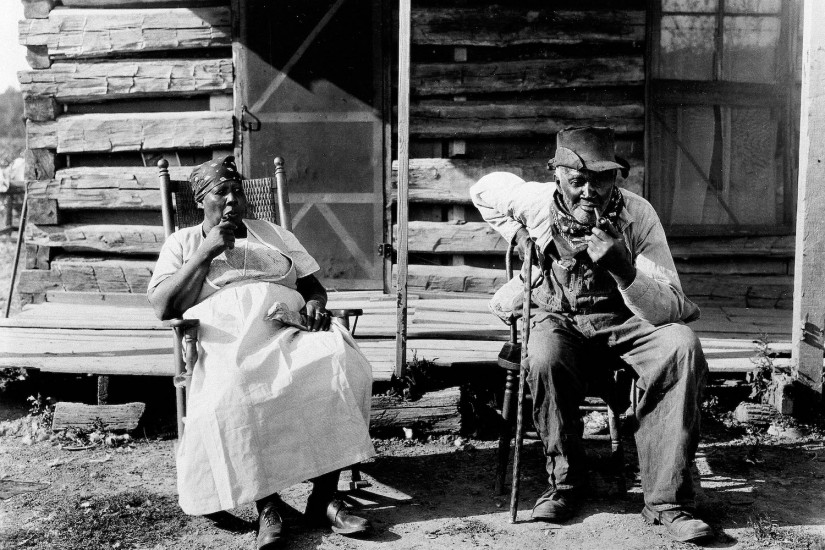Drive Route 61 through the Mississippi Delta and you’ll find much of the scenery exactly as it was 50 or 75 years ago. Imposing plantations and ramshackle shotgun houses still populate the countryside from Memphis to Vicksburg. Fields stretch to the horizon. The hands that dig into black Delta dirt belong to people like Willena Scott-White, African Americans who bear faces and names passed down from men and women who were owned here, who were kept here, and who chose to stay here, tending the same fields their forebears tended.
But some things have changed. Back in the day, snow-white bolls of King Cotton reigned. Now much of the land is green with soybeans. The farms and plantations are much larger—industrial operations with bioengineered plants, laser-guided tractors, and crop-dusting drones. Fewer and fewer farms are still owned by actual farmers. Investors in boardrooms throughout the country have bought hundreds of thousands of acres of premium Delta land. If you’re one of the millions of people who have a retirement account with the Teachers Insurance and Annuity Association, for instance, you might even own a little bit yourself.
A war waged by deed of title has dispossessed 98 percent of black agricultural landowners in America.
TIAA is one of the largest pension firms in the United States. Together with its subsidiaries and associated funds, it has a portfolio of more than 80,000 acres in Mississippi alone, most of them in the Delta. If the fertile crescent of Arkansas is included, TIAA holds more than 130,000 acres in a strip of counties along the Mississippi River. And TIAA is not the only big corporate landlord in the region. Hancock Agricultural Investment Group manages more than 65,000 acres in what it calls the “Delta states.” The real-estate trust Farmland Partners has 30,000 acres in and around the Delta. AgriVest, a subsidiary of the Swiss bank UBS, owned 22,000 acres as of 2011. (AgriVest did not respond to a request for more recent information.)
Unlike their counterparts even two or three generations ago, black people living and working in the Delta today have been almost completely uprooted from the soil—as property owners, if not as laborers. In Washington County, Mississippi, where last February TIAA reportedly bought 50,000 acres for more than $200 million, black people make up 72 percent of the population but own only 11 percent of the farmland, in part or in full. In Tunica County, where TIAA has acquired plantations from some of the oldest farm-owning white families in the state, black people make up 77 percent of the population but own only 6 percent of the farmland. In Holmes County, the third-blackest county in the nation, black people make up about 80 percent of the population but own only 19 percent of the farmland. TIAA owns plantations there, too. In just a few years, a single company has accumulated a portfolio in the Delta almost equal to the remaining holdings of the African Americans who have lived on and shaped this land for centuries.
